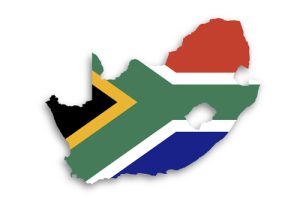
Minister of Finance Pravin Gordhan delivered his Budget 2017 speech to Parliament yesterday. The budget introduced a new tax bracket for the very rich, revealed that revenue has lagged behind the economy and almost all economic indicators and fiscal numbers weaker than in last year’s budget.
Here are highlights from the speech as well as reactions from experts on the 2017 budget.
- Total expenditure of R1.56 trillion is planned for the 2017/18 fiscal year and R5.05 trillion over the next three years.
- The budget speech identified five priority areas where the public sector is committed towards working with the private sector and social stakeholders to propel inclusive economic growth. These include improved basic education results, reform of technical and vocation training, development of urban areas, regional integration, and reform of domestic markets to increase competition.
- In order to support economic growth over the medium term, the government is spending money on rural development and land reform (R30 billion), SMEs (R3.9 billion), infrastructure in special economic zones (SEZs) and industrial parks (R4.2 billion), broadband implementation (R1.9 billion), funding for the Council for Scientific and Industrial Research (CSIR) (R3.9 billion), tourism promotion (R494 million), and the Oceans Economy Phakisa Operation (R266 million). A further R5 billion has also been added to tertiary education.
- The minister expects to see economic growth of 1.3% this year – this is in line with the figure announced in October last year and relatively high compared to what local analysts expect and an International Monetary Fund (IMF) estimate of only 0.8%.
- Exports are expected to grow by 1.9% in 2017, 4.9% in 2018 and 5% in 2019, after estimated negative growth of -1.2% last year
- After reaching 6.4% in 2016, consumer inflation is expected to decline to 5.7% in 2018.
General outlook
Gordhan has been lauded for what some have described as a balanced speech with him placing major emphasis on transformation.
“Minister Pravin Gordhan’s budget speech struck the right balance between finding room to fund government’s revenue shortfall and ensuring that the majority of the population benefits from a fair tax dispensation” – Trurman Zuma, Chief Executive of Savings at Sanlam
“Minister Gordhan’s Budget, along with the recent announcement of the National Minimum Wage Agreement, signals more focus from government on the challenges of inequality. Though this spells some pain for higher income earners, we need to be mindful of the growing social problems in South Africa and discontent among poorer communities. We need to focus on growth as well as redistribution if we are to tackle these challenges” – Rob Cooper, tax expert and director of Legislation at Sage
“The issue of transformation featured prominently throughout the speech. The minister indicated that fiscal spending – one of the tools that the president identified as an instrument of change – aids transformation through funding programmes that ensure South Africans live in dignity, have access to services and economic opportunities, supports growth and job creations, and increases investment and development” – Christie Viljoen, Senior Economist, KPMG, South Africa
“This was a fairly optimistic budget that will put the credit rating agencies at ease. As with SONA 2017, the focus was on transformation. The budget does however offer a limited scope for transformation; given the fact that allocation for land redistribution declined by 3%, but for restitution it increased by 2.5%. Allocations for farmer support and development increased by 10%, to R 3.79 billion which will go a long way in assisting subsistent farmers” – Dawie Maree, head of Information and Marketing at FNB Business, Agriculture
SMMEs
Gordhan announced that R3.9 billion would be allocated for SMMEs and cooperatives over the next three financial years. He announced plans to provide about 2,000 small, medium and micro enterprises (SMMEs) with support from the Black Business Supplier Development Programme to help them become competitive, sustainable, job-creating firms.
Meanwhile, the National Informal Business Upliftment Scheme aims to develop more than 5,000 informal businesses and cooperatives through financial and other support.
“It [National Informal Business Upliftment Scheme] is a great idea since it will help these organisations grow from survivalist enterprises to sustainable, growing and competitive companies that could contribute towards employment and tax revenue” – Anton van Heerden
“In his 2017 budget, Finance Minister Pravin Gordhan promised the continuation of procurement reforms to widen opportunities for small business participation and ensure public money is being spent effectively. However, if the government is serious about boosting small business growth, they need to first ensure that any service providers are paid promptly. Over 23,000 invoices were paid late by provincial government departments in 2016, totalling more than R2 billion. The number of invoices paid late by national departments also rose from over 13,400 in September 2015 to nearly 14,900 in September last year. South Africa’s small business growth could be severely hampered by a culture of late payment and the government is one of the biggest culprits” – Colin Timmis, SA Head of Accounting, Xero
“These developments are welcome, though 7,000 companies are a small fraction of the estimated 2,8 million Small and Medium Businesses in South Africa. There are many steps government could take in future years to support this larger community of small companies—for example, an increase in the R1 million threshold for VAT registration is long overdue” – Anton van Heerden
“There were key encouraging points for entrepreneurs in particular. While the Minister states that economic growth is slow and times are generally tough, “we draw strength from the resilience and the diverse capabilities of our people, our business sector, our unions and our social formations” – Yudhvir Seetharam, Head of Analytics at FNB Business
“Minister Gordhan once again reiterated that suppliers who have met their delivery obligations are entitled to payment within 30 days. Slow payment is a pain-point for small businesses, so this is good news. Government remains committed to using its procurement spend to help small and black businesses to grow—which is a wonderful way to support emerging businesses” – Anton van Heerden
TAXES
The Minister announced that revenue has lagged behind the economy, leading to R30bn shortfall and that the government needs to raise an additional R28 billion in taxes.
Tax revenue is expected to rise by 10.5% during the 2017/18 financial year to R1.26 trillion. This includes some R28 billion in revenue raised by making adjustment to the tax system, including: A new top personal income tax bracket of 45% for those with a taxable income above R1.5 million; an increase in the dividend withholding tax from 15% to 20%; limited bracket creep relief, resulting in the tax free threshold rising by only 1% to R75 750; a 30c/litre rise in the general fuel levy; a 9c/litre rise in the road accident fund levy; increases in the duties on alcohol and tobacco of between 6% and 10%
There was no adjustment made to the value-added tax (VAT) rate which is expected to bring R312bn.
“The increase in withholding tax on dividends from 15% to 20% is significant since it will raise a further R6.8 billion for the fiscus. While it’s a relatively equitable tax increase in an environment with little room for manoeuvre, it could affect pensioners who depend on income from dividends as well as discourage savers. Also noteworthy is a change to the law that includes three categories of dividends in remuneration from 1 March 2017. This means that these dividends can be potentially taxed at 45% – it was 41% before” – Rob Cooper
“In particular, the increase of the dividends withholding tax from 15% to 20% paired with the existing corporate tax rate of 28% results in an effective corporate tax rate of 42,4% (up from 38,8%). This essentially means that a business owner will be taxed at an effective rate of 42,4% if the owner wishes to take funds out of the company” – Tertius Troost, tax consultant at Mazars
“I am not surprised by the rise in the top marginal income tax rate to 45%, given the R28 billion revenue gap Minister Gordhan needed to plug. As a form of wealth tax, it’s more politically acceptable than a VAT increase; like the National Minimum Wage, it also has a redistributive effect that could help reduce inequality.
“That said, given that high-income earners in South Africa already carry a heavy tax burden, government should perhaps be cautious about adding too much more to it in the next Budget Speech. There is a balance to be struck between collecting a fair share from the wealthy and taxing them so heavily that tax avoidance or moving overseas become attractive options to them” – Rob Cooper
“The increase of income tax on individuals earning over R1.5 million per year, to 45% will affect around 100 000 income earners which is expected to bring in an additional R4.4 billion in revenue. It is worth noting that the top 6.6% of registered tax payers will now be contributing around 50% of the country’s total personal income tax revenue” – Mike Teuchert, Partner at Mazars
An effective corporate tax rate of 42,4% is higher than the Organisation for Economic Co-operation and Development (OECD) average, says Troost. “The implications of this is that South Africa is becoming increasingly uncompetitive in terms of foreign investment as foreigners looking to invest in local companies will pay a higher effective tax rate than other countries, such as Mexico. The new effective corporate tax rate places South Africa in the same league as Norway and Spain” – Tertius Troost


